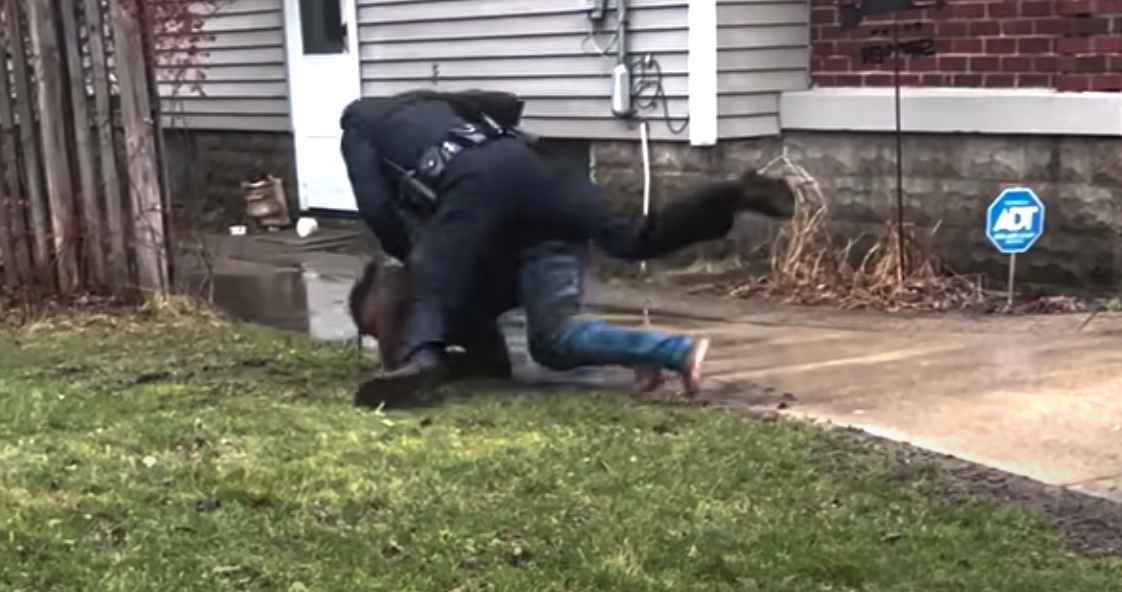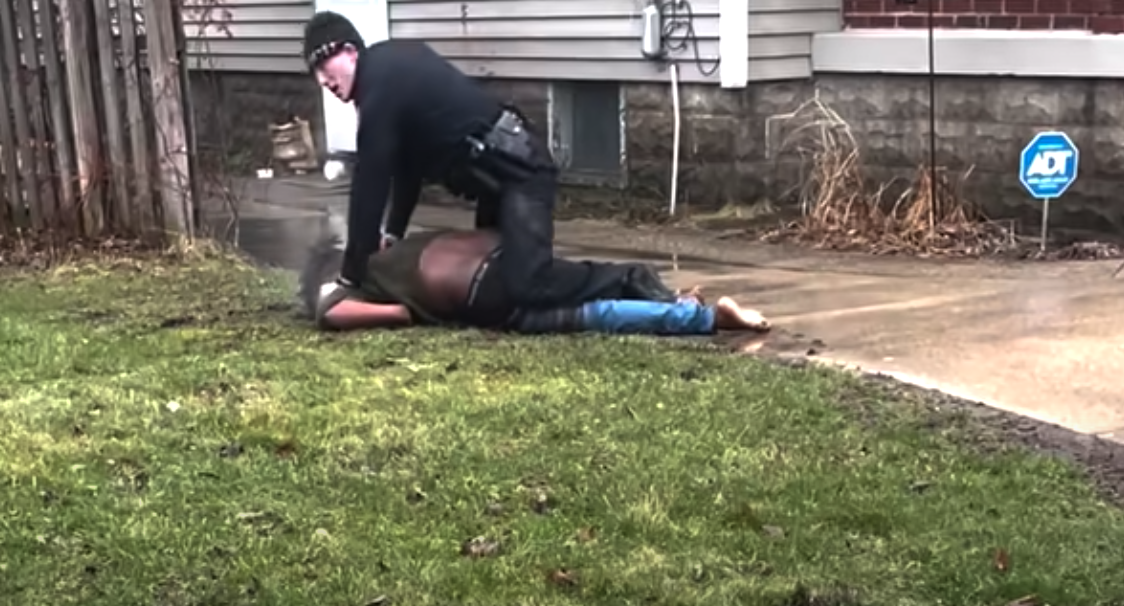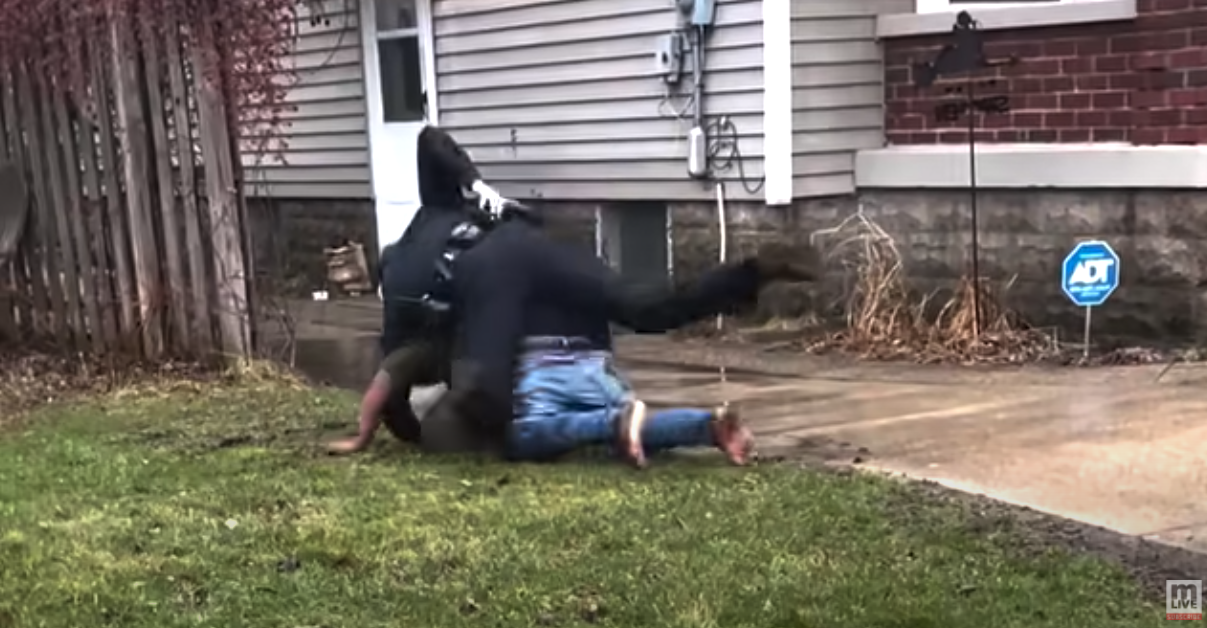If an Officer is Too Slow or Weak to Stop an Unarmed, Non-Dangerous Suspect Can he Use Deadly Force? Michigan Ct Rules Weak White Grand Rapids Cop Must Face Murder Charge for Shooting Patrick Lyoya
/From [HERE] The Michigan Supreme Court turned down an appeal Monday, clearing the way for a police officer to face trial for second-degree murder in the death of a man who was shot in the head in 2022.
In a 5-2 order, the court let stand a Court of Appeals opinion in favor of the Kent County prosecutor.
Patrick Lyoya, a Black man, was killed at the end of a traffic stop in Grand Rapids. Initially, the circumstances that led to the traffic stop weren’t clear, but police said after further inspection the vehicle had a license plate not registered to the vehicle. Unregistered vehicle is a minor traffic misdemeanor. After stepping out of his car, videos released by the police show, Mr. Lyoya appears confused as the officer tells him to get back in the vehicle. Officer Schurr asks him whether he speaks English. Mr. Lyoya responds that he does speak English and asks, “What did I do wrong?” After a brief exchange about whether Mr. Lyoya has a driver’s license, Officer Schurr grabs Mr. Lyoya, who pulls away and starts to run, the footage shows.
Mr. Lyloa had not committed any felony (unregistered vehicle is a minor traffic misdemeanor) and the white cop was not authorized to use deadly force to apprehend him as a fleeing felon.
The officer tackles Mr. Lyoya in a nearby lawn, yelling “Stop!” as Mr. Lyoya appears to try to regain his footing.
Midway through the struggle, the officer’s body camera stops filming. Chief Eric Winstrom of the Grand Rapids police said pressure was applied to the camera to turn it off during the struggle. It was not clear who applied that pressure or whether it was intentional. But Cops lie about everything - statements about any malfunction from the person accused of murder are probably self-serving until proven at trial.
Other cameras — from the officer’s vehicle, a nearby doorbell security system and a bystander’s cellphone — capture different portions of the encounter. Shortly before the fatal shot is fired, Officer Schurr yells, “Let go of the Taser!” Mr. Lyoya is facing the ground and pushing up, with the officer on top of him, in the moments just before the shooting. Again, said statement from a cop-actor performing for the camera is self-serving - the video speaks for itself.
At any rate, Lyoya was under arrest for a traffic violation, which is a minor misdemeanor. As such, he was not a fleeing felon. The Supreme Court has explained the use of deadly force to prevent escape is unconstitutional, at least in regard to white citizens that is. The Court has explained,
The use of deadly force to prevent the escape of all felony suspects, whatever the circumstances, is constitutionally unreasonable. It is not better that all felony suspects die than that they escape. Where the suspect poses no immediate threat to the officer and no threat to others, the harm resulting from failing to apprehend him does not justify the use of deadly force to do so. It is no doubt unfortunate when a suspect who is in sight escapes, but the fact that the police arrive a little late or are a little slower afoot does not always justify killing the suspect.
A police officer may not seize an unarmed, nondangerous suspect by shooting him dead… Where the officer has probable cause to believe that the suspect poses a threat of serious physical harm, either to the officer or to others, it is not constitutionally unreasonable to prevent escape by using deadly force. Thus, if the suspect threatens the officer with a weapon or there is probable cause to believe that he has committed a crime involving the infliction or threatened infliction of serious physical harm, deadly force may be used if necessary to prevent escape, and if, where feasible, some warning has been given.
Tennessee v. Garner - 471 U.S. 1 at page 11 (1985).


Defense lawyers said Schurr, who is white, feared for his safety. Schurr claimed Lyoya had control of his Taser when he shot him.
A Grand Rapids judge said there was enough evidence to send the case to trial, a low threshold under state law. The Court of Appeals affirmed the decision earlier this year.
“We hope to move forward as quickly as possible to have a final resolution for Patrick’s family who has been patiently waiting for years for this to occur,” prosecutor Chris Becker said Monday.
Defense attorney Matthew Borgula said he was disappointed with the Supreme Court's refusal to hear an appeal over the use of deadly force. He said a plea deal seems unlikely.
“I don't think Officer Schurr committed a crime,” Borgula said.
Schurr, an officer for seven years, was fired by the Grand Rapids Police Department two months after the shooting.







































































































































































































































































